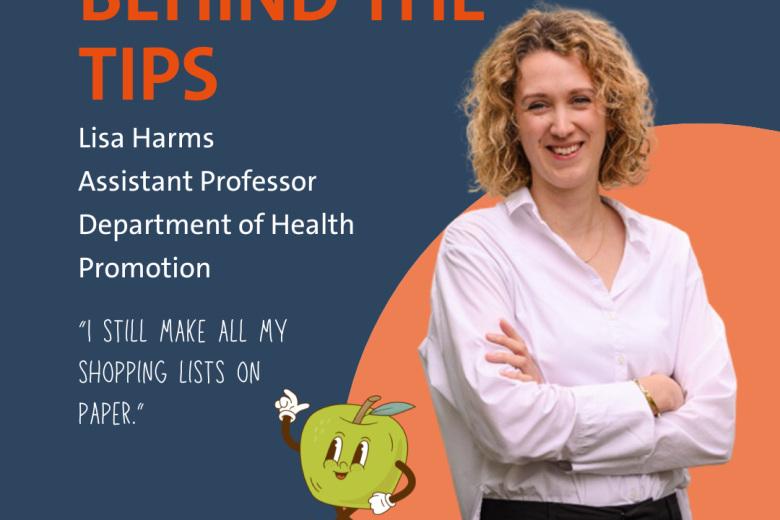Evidence-based health tips for students: the science of sleep
In the upcoming months, we’ll share tips for our students on how to live a healthier life. Not just a random collection, but tips based on actual research happening at our faculty. The brains behind this idea are Lieve Vonken and Gido Metz, PhD candidates at CAPHRI, the Care and Public Health Research Institute and researchers at the Department of Health Promotion. In the first edition, Ree Mertens covers a good night's sleep.
How did you sleep last night? It’s a common question because of the importance of a good night’s rest on our health and well-being. But what happens in your brain and body when you sleep well, or badly, and how can you improve it? Ree Meertens, an expert on sleep health promotion presents three solid evidence-based tips to improve sleep. Let us know what worked! The reference list can be found here
Don't cut on your sleep
Do you know the importance of getting enough sleep? Getting 7-9 hours of sleep lowers your risk of mental problems and diseases. When you sleep long enough, neural connections are strengthened, information is processed, and cognitive performance improves, which is why sleep is also important for learning and performance (ref. 1).
How much sleep you need is hard to say, some need 9 hours, some can do with 6. Don’t worry when you cannot sleep well for a few days. You can function on about 4 hours of sleep. Just don’t build up a sleep debt in the long run.
Get up at the same time every day
Sleep regularity also improves performance and prevents (mental) health diseases, next to duration (those 7-9 hours). Get up at about the same time daily. Go to bed at about the same time but wait until you are sleepy. When you did build up a sleep debt during exam periods for instance, reducing the sleep debt is more important than staying regular (ref. 2).
Wind down before bedtime
Prepare for a good night's sleep. What works for you to improve your sleep quality (next to the already mentioned sleep regularity) depends (ref. 3,4,5). Here below are some tips. Whichever you do, try to do them consistently. Just once is certainly not enough.
- Wind down before bedtime, stop studying, gaming or using social media about half an hour to an hour before bedtime.
- Be physically active outdoors, but not the hours before bedtime.
- Sleep in a cool, dark and quiet environment.
- Don’t try to force sleep. You may just accept to not sleep, or get up and do something else until you get sleepy.
For more tips, see reference nr. 5
Also read
-
Evidence-based health tips for students: supermarket psychology
In the upcoming months, we’ll share tips on Instagram for our students on how to live a healthier life. Not just a random collection, but tips based on actual research happening at our faculty. The brains behind this idea are Lieve Vonken and Gido Metz, PhD candidates at CAPHRI, the Care and Public...

-
Evidence-based health tips for students: the science of love and sex
In the upcoming months, we’ll share tips on Instagram for our students on how to live a healthier life. Not just a random collection, but tips based on actual research happening at our faculty. The brains behind this idea are Lieve Vonken and Gido Metz, PhD candidates at CAPHRI, the Care and Public...

-
Evidence-based health tips for students: the science of studying
In the upcoming months, we’ll share tips on Instagram for our students on how to live a healthier life. Not just a random collection, but tips based on actual research happening at our faculty. The brains behind this idea are Lieve Vonken and Gido Metz, PhD candidates at CAPHRI, the Care and Public...
